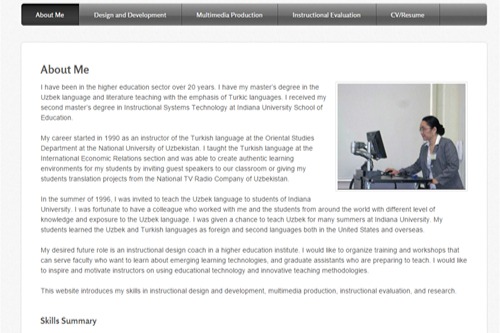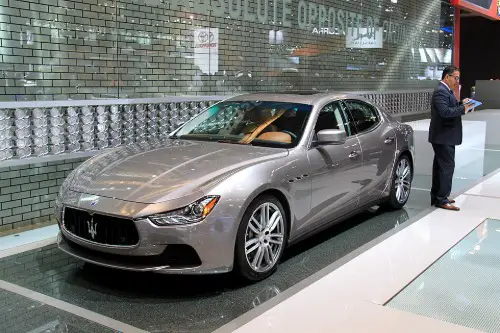1. Drinking to Excess

Think bachelorette parties, tailgates, or corporate happy hours—heavy drinking is often normalized or even encouraged in these settings. “Work hard, play hard” is a common mantra, and blackout stories sometimes become social currency. Publicly, it’s all laughs, cheers, and camaraderie. Privately, though, excessive drinking is judged as irresponsible or even a red flag.
Someone who drinks too much too often might face whispers about having a “problem.” Americans often struggle to reconcile their celebration of alcohol culture with the stigma around addiction. If a colleague is a bit sloppy at a company event, people will joke about it—then question their professionalism later. This double standard leaves little room for nuance.
2. Self-Promotion

In professional settings and on social media, Americans often applaud self-promotion—think résumés that brag, LinkedIn posts celebrating promotions, or personal “brand building.” It’s seen as confidence, ambition, and hustle. But behind closed doors, those same behaviors can be labeled as arrogant, attention-seeking, or “too much.” Especially for women and minorities, research shows self-promotion can be perceived more negatively despite equal competence.
This contradiction reflects deeper cultural tensions around humility and individualism. Americans value the “go-getter,” but there’s a fine line between admired and annoying. If someone’s constantly celebrating themselves, coworkers might roll their eyes, even if they “liked” the post. It’s a balancing act between visibility and likability.
3. Hustle Culture

Working 60-hour weeks and always being “on” is often glorified in the U.S.—especially in tech, finance, and start-up worlds. People wear their burnout like a badge of honor, using phrases like “I’ll sleep when I’m dead.” Publicly, this behavior is equated with being driven and passionate. But privately, many people see it as unsustainable, toxic, and even sad.
When someone admits they haven’t taken a vacation in years, the response might be applause—but also pity. Mental health conversations are making people question this nonstop grind. Americans are increasingly aware that overworking can lead to serious emotional and physical consequences. Yet the culture still hasn’t fully let go of idolizing it.
4. Spending Big on Weddings

Lavish weddings are frequently praised—Pinterest-perfect décor, custom menus, destination ceremonies. When people post the big day online, they’re met with heart emojis and enthusiastic comments. But behind the scenes, guests and even friends often question the cost and priorities. Many wonder, “Why spend $50K on one day?”
Public adoration for big weddings clashes with private skepticism about financial wisdom. The same friends who cheer your photos may privately call it “over the top.” There’s admiration for the aesthetics but judgment if it seems excessive or performative. Americans love spectacle, but they also love frugality—at least in theory.
5. Plastic Surgery and Cosmetic Enhancements

On red carpets and Instagram, glowing praise greets Botox, fillers, and nose jobs—especially when framed as “empowerment” or “self-care.” Celebrities and influencers often get applauded for “owning” their transformations. But the same people can be quietly mocked for looking “fake” or trying too hard. The admiration often stops when the enhancements are obvious.
There’s an unwritten rule: look perfect, but don’t look like you tried. People want you to age gracefully, but not naturally. Americans celebrate beauty but judge the pursuit of it. It’s especially harsh for women, where beauty ideals and authenticity are in constant conflict.
6. Being Rich

We cheer billionaires, obsess over luxury homes on YouTube, and idolize “rich habits” as aspirational. Wealth is often treated as evidence of intelligence, discipline, or even moral superiority. But in private, many Americans resent the ultra-wealthy, seeing them as out of touch or exploitative. The wealth gap adds fuel to this quiet criticism.
While someone might be praised for buying a Tesla or living in a penthouse, they’re also judged for flaunting it. Talking about money too openly can make people uncomfortable. Americans walk a strange line between worshiping wealth and resenting it. That tension shows up every day in everything from celebrity gossip to political debates.
7. Entrepreneurship

Starting a business is often framed as the ultimate American dream—brave, bold, and brilliant. Entrepreneurs are hailed as visionaries, especially if they “bootstrap” their way to success. But if the business fails or struggles, people quickly change their tune. Behind the scenes, there’s a lot of doubt and eye-rolling.
Someone who leaves a steady job to “follow their passion” might get initial praise but lose credibility if results don’t come fast. Many Americans admire the risk—until they see the reality. Financial instability, unconventional paths, or slow growth can spark quiet judgment. Entrepreneurship is admired in theory but questioned in practice.
8. Eating “Clean” or Dieting

Publicly, Americans applaud people for being health-conscious—whether it’s going keto, intermittent fasting, or “cutting out sugar.” Instagram stories filled with green smoothies and gym selfies get tons of likes. But in private, extreme food habits often come across as obsessive or smug. People might say, “Good for them,” while rolling their eyes.
There’s praise for discipline, but judgment for restriction. Especially when someone constantly talks about their diet, it can feel performative. Americans are deeply conflicted about food—between health, appearance, and enjoyment. That shows in how quickly admiration turns to annoyance.
9. Traveling Constantly

Travel is widely celebrated—people are called “worldly,” “adventurous,” or “cultured” for globetrotting. Social media rewards constant travel with envy and admiration. But behind the admiration, there’s often skepticism: How do they afford it? Are they avoiding responsibilities?
Some people quietly assume frequent travelers are running from something—commitment, stability, or even adulthood. Others wonder if it’s just for show. Americans love wanderlust stories, but also quietly value structure and roots. Too much adventure can look like escapism.
10. Being Loud and Outgoing

In many public contexts—especially in networking, entertainment, or social media—being loud, bold, and extroverted is rewarded. It’s seen as charisma and leadership. But in more private or intimate settings, those same traits can be seen as obnoxious or overwhelming. “They suck all the air out of the room” is a common critique.
Americans admire confidence but sometimes confuse it with dominance. People who are always “on” can wear others out. Especially in professional settings, being too loud can backfire, even if it got you noticed initially. Extroversion is celebrated, but only in small, acceptable doses.
11. Having Kids

Parenting is glorified in American culture—baby showers, gender reveals, and family holiday cards are met with fanfare. People call it the “most important job in the world.” But in private, parents (especially moms) are judged relentlessly—for their choices, their boundaries, even their tone. “Mom-shaming” and “dad guilt” are real.
Someone might be praised for having three kids, then criticized for letting them use tablets. There’s little room for nuance between celebration and condemnation. Americans adore the idea of family, but are quick to critique how others raise theirs. It’s a minefield of contradictions.
12. Being “Busy”

Saying “I’ve just been so busy” is often a socially accepted way to signal importance or productivity. People are impressed by packed schedules, back-to-back meetings, and constant errands. But privately, others might question your time management—or your sanity. Busyness is praised until it becomes annoying or self-important.
There’s a difference between being productive and being performative. People might admire your grind, but also think you’re making things harder than they need to be. In many cases, “busy” is just code for overwhelmed. And that can make others quietly pity you, even while they publicly cheer you on.
13. Posting About Charity or Good Deeds

When someone donates or volunteers and shares it online, the immediate reaction is usually positive—likes, claps, and heart emojis. It signals kindness and social awareness. But privately, many people question the motives: Is it genuine or just for clout? There’s suspicion around the line between helping and humblebragging.
Even good intentions can be seen as self-serving. Americans admire altruism but dislike being preached to. Public generosity is admired—until it feels like a performance. That gap between perception and intent makes it a tricky space to navigate.
This post 13 Behaviors That Americans Celebrate in Public But Judge in Private was first published on American Charm.


